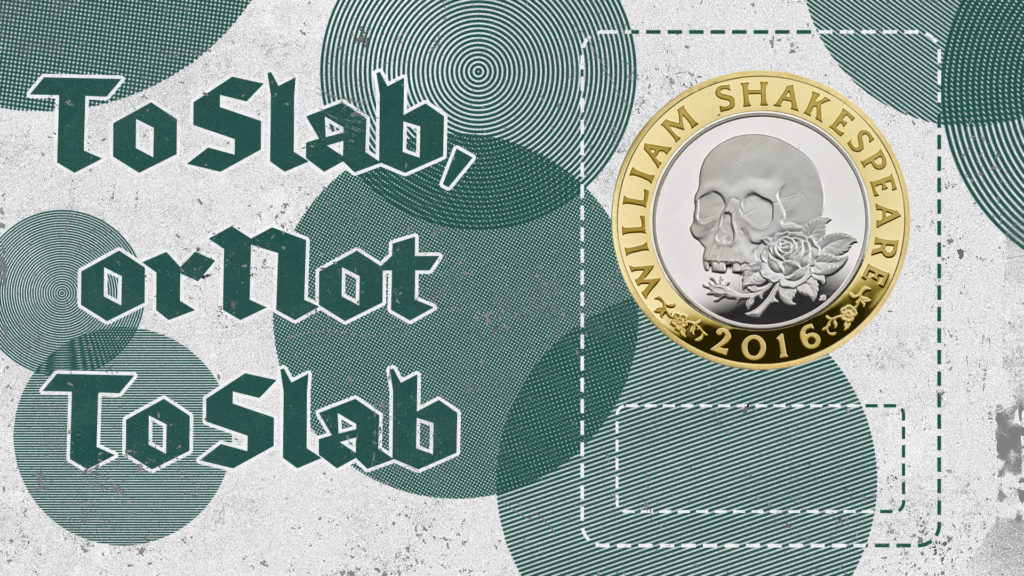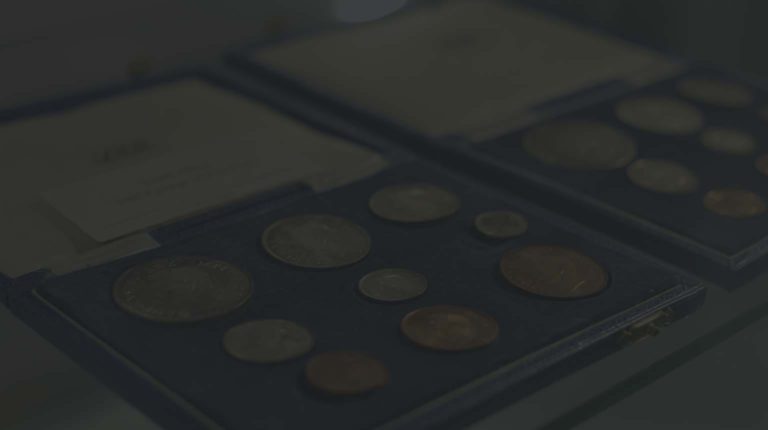
Our friends across the pond have been slabbing items for years, from Topps rookie cards for Mickey Mantle and Michael Jordan to limited edition sweet wrappers and unopened Pokemon packs. In the world of rare coins, it is still quite a new practice -especially when you consider the age of the artefact- and not one that has been readily adopted worldwide.
Is there a reason for this? Is there a correct answer to our opening gambit? We spoke to members of the AH Baldwin specialist coin team to get their take…
“Typically, I am against slabbing, the coin is encased in plastic, it is less easy to store and the coin in many instances just becomes a number. Generally British collectors like to be able to hold the coin in their hand. In certain areas slabbing is also very inconsistent, especially so with hammered coins. I have seen many VF hammered gold and silver coins given a Mint State rating and this is because it is American graders who just don’t have enough experience with British coins, after all the American series is much shorter and they don’t really encounter hammered coins. In recent years a very rare James I Ship Ryal was slabbed as MS61 making it one of the finest available for commerce, the grader had not noticed that the coin had been pierced and plugged and as such was damaged. As a result, the coin sold for a very large sum at auction!!”
NEIL PAISLEY – AH BALDWINS MANAGING DIRECTOR
“I wouldn’t collect coins in slabs but recognise that in some cases it is essential. I prefer to hold the coin itself.”
JEREMY CHEEK – NUMISMATIC CONSULTANT
“The trade can become more of a numbers game, with people focusing more on the grade than the actual coin inside” – Dominic Chorney
“Slabbing by its nature is ambiguous filled with disjunctions. It is an inconsistent way of leapfrogging coins into a tangible commodity and asset. The main issue with slabbing is the inconsistent grades awarded to coins, the lack of a tailored made approach to different types and numismatic era’s, and the lack of evolution of the Sheldon scale, which is where it began. It is simultaneously integral to the modern coin market. Positives and negatives, in ten years’ time most coins will be slabbed from the outset before appearing in online stock or in an auction itinerary. Many collectors prefer slabbed coins, several dealers also have a predilection to securing a slabbed graded coin as a) the market demands it b) authenticity is guaranteed c) the universal language of the grade helps make the coins more appealing to a worldwide audience. A very international mechanism with a strong following.”
CHRIS TYRIMOS – BRITISH NUMISMATIST
“I have no problem with slabbing coins. They can simply provide a level of protection. Proof quality coins can be easily damaged, and encapsuled coins are protected from this. In terms of ancient coins, however, collectors often like to handle their coins (carefully), and are inspired by the history around them. Encapsulating a two-thousand-year-old piece of history in plastic can upset some collectors. However, this can easily be reverse by breaking open the slab (carefully). Capsules and grading also turn collectable coins into more of an investment commodity. They can be bought and sold by almost anybody, regardless of their level of knowledge of the subject. The trade can become more of a ‘numbers game’, with people focusing more on the slab grade than the actual coin inside. This being said, I have no problem with graded coins or raw coins, and I’d be lying if I didn’t say I often feel more comfortable handling a coin in a slab, purely because I know I’m not going to accidentally damage it.”
DOMINIC CHORNEY – ANCIENT COIN SPECIALIST
“I’m not against third party coin grading. It can be a good way for an unbiased evaluation of the coin condition. However, we do have 2,000+ years of coin history and slabbing is not appropriate for all of them. For me, the ancient coins cannot be graded the same way we grade modern coins, they require a more individual approach.”
EMA SIKIC – BALDWINS SALES EXECUTIVE
So, there you have it, the Baldwin’s team are not necessarily against slabbing but probably wouldn’t do it with items from their own collection or recommend it to collectors with particularly rare coins. At the end of the day, they are a tangible bunch who like to be able to feel the coin and value it with hand and eye unobscured by plastic casing.
We’d love to know what side of the debate you stand on, did you agree with our experts? Vote in our online poll and let us know…
Further Information on this subject
- Should you slab your rare coins? – Watch the Baldwins video featuring Neil Paisley & Dominic Chorney


